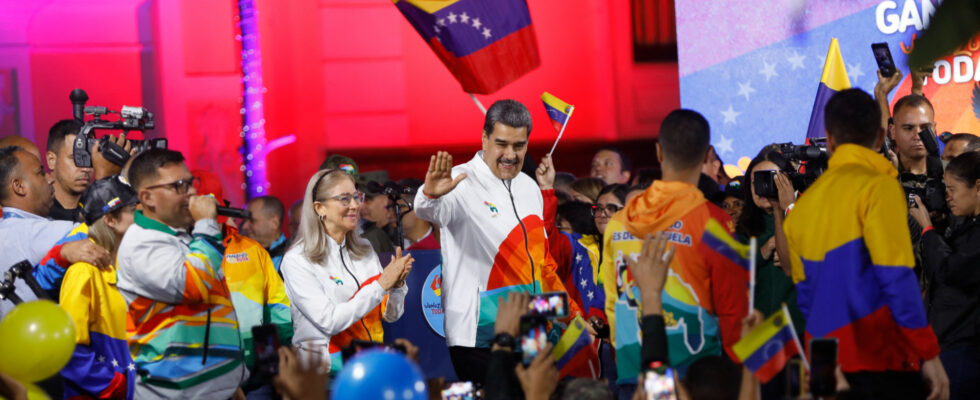Romain Rouillard / Photo credit: PEDRO RANCES MATTEY / AFP
modified to
8:57 p.m., December 4, 2023
Guyana had tried, in vain, to have the vote canceled, citing an “existential threat”. But Venezuelans did indeed go to the polls this Sunday, December 3. Invited to express their views during a consultative referendum on the future of Essequibo, a region belonging to Guyana, the inhabitants voted 95% in favor of integrating this province into their country. The latter has been a source of desire in Caracas for many years and even more so since 2015.
Eight years ago, the American oil company ExxonMobil revealed the presence of a huge deposit of crude oil off the coast of the disputed region. To which must be added the discovery of additional black gold last October, giving Guyana the status of a “new emirate” in the opinion of many experts. Recently, Georgetown even launched tenders to exploit the precious resource in the Essequibo maritime area. Enough to revive a dispute well before oil issues.
When the British crown benefits from regional disorder
To understand its origins, we must go back to the 19th century, when Essequibo, which today covers two thirds of Guyana, did indeed belong to Venezuela, newly independent from the Spanish kingdom, while Guyana was part of the British colonial empire which knew how to exploit, for its own benefit, the instability of a region where independence is a new reality.
“At that time it was difficult to know where precisely the borders of the Amazonian territories were. Therefore, the British clearly appropriated this part of the territory (the Essequibo) and declared it part of their own colony , in this case Guyana”, rewinds Christophe Ventura, research director at Iris and specialist in Latin America.
In 1889, at a time when international law did not exist, an arbitration was rendered and confirmed Guyana’s sovereignty over the Essequibo. An American jurist would reveal much later, in a post-mortem testimony in 1949, the pressures experienced by the judges and exerted by the British camp. “All this led to the Geneva Accords in 1966, the moment when Guyana became independent,” explains Christophe Ventura.
A system, still in force today, then emerged. “Venezuela recognizes the existence of Guyana and, at the same time, maintains the claim to the Essequibo. And Guyana recognizes Venezuela’s right to be able to claim this area.” A maintenance of the status quo then prevails intended to avoid a forceful annexation of the Essequibo by Caracas.
A referendum that benefits Maduro
A precarious balance which has been wavering since the discovery of this oil deposit by an American company, the United States being among the geopolitical adversaries of the Bolivarian Republic of Venezuela. A renewed tension which was therefore manifested by the organization of this referendum on Sunday December 3, raising fears of a potential escalation. To the point of leading to armed conflict?
“I don’t think that the military hypothesis is the most serious,” replies Christophe Ventura, referring to a Venezuelan army in small form, “which has rarely fought in its history”, and a Venezuelan state in the grip of a serious economic crisis, probably incompatible with the triggering of major military maneuvers. This Sunday, Guyanese President Irfaan Ali assured his compatriots that “there is nothing to fear in the hours, days and months to come.”
“I think that the basic strategy is to raise the stakes very high, to sometimes increase the tension to arrive at a negotiation between Venezuela and Guyana”, deciphers Christophe Ventura. We can imagine a shared benefit or a distribution of wealth, particularly mining and oil, which are in this territory.” On the other hand, the organization of such a referendum proves highly profitable for Venezuelan President Nicolas Maduro, assures the specialist “This allows him to eclipse the country’s political news, in this case an opposition primary which mobilized 2.5 million people and nominated a very dangerous candidate for him, Maria Corina Machado.”
But also to place the opposition in an uncomfortable position. “In Venezuelan society, the consensus is overwhelming that Essequibo is Venezuelan, regardless of political parties. So it is very difficult for Maduro’s opponents to say that they are against the area in reclamation. He launched a subject which allows him to recover the political agenda”.
